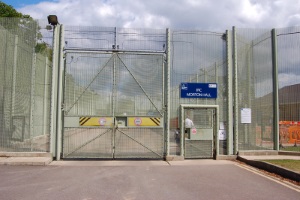The United Nations High Commissioner for Refugees (UNHCR) last week released two reports as part of its 'Global Strategy – Beyond Detention 2014-2019', which aims to support governments to end the detention of asylum seekers and refugees.
 You can access the reports from here.
You can access the reports from here.
In partnership with states and civil society organisations, the UNHCR strategy was launched in 2014 and has been rolled out in 12 countries: Canada, Hungary, Indonesia, Israel, Lithuania, Malaysia, Malta, Mexico, Thailand, the United Kingdom, the United States and Zambia.
The report UNHCR Global Strategy Beyond Detention: Progress Report features a look at progress to end detention of asylum-seekers in the UK (see page 75).
It notes: "The United Kingdom (UK) relies on and utilises detention in asylum procedures more frequently than most other countries in the EU. In 2015, of the 33,000 individuals who were detained in immigration detention, almost 15,000 were asylum-seekers. UNHCR had observed an increased reliance on the Detained Fast Track procedure (DFT) for asylum processing with approximately 15% (4,000) of the UK asylum caseload going through the procedure in 2014 and early 2015, before it was suspended by the Government in July 2015. The UK is also one of a handful of countries without a maximum time limit on immigration detention and 2015 saw an increase in long-term detention with over 100 detainees detained for over a year."
On the subject of legal assistance for asylum seekers, the report states: "Cuts in legal aid and further restrictions on both judicial reviews and bail applications have made it more difficult to bring cases challenging detention before the courts. The UK still does not have a time limit on detention and only minimal progress was achieved through the Immigration Act 2016, which introduced automatic judicial review after 4 months of detention and a time limit of not more than 72 hours for pregnant women."
According to a UNHCR press release, the report noted encouraging progress in ending child detention. The UK was, however, one of only two countries who did not record a decrease in the number of children detained during the reporting period. Home Office figures showed that the number of children detained in 2015 was 128, unchanged from the figure for 2014.
Speaking at the launch of the reports, UNHCR's Assistant High Commissioner for Protection Volker Türk was quoted as saying: "Too many refugees and asylum seekers, including children, are forced to stay in detention centres; when they should be in an environment where they can get the information, support, privacy, and access to their legal rights. This strategy is an important step in ending the counter-productive use of detention and we welcome the encouraging progress made in these two years."
Türk stressed that more needs to be done by governments and other stakeholders in the coming years.